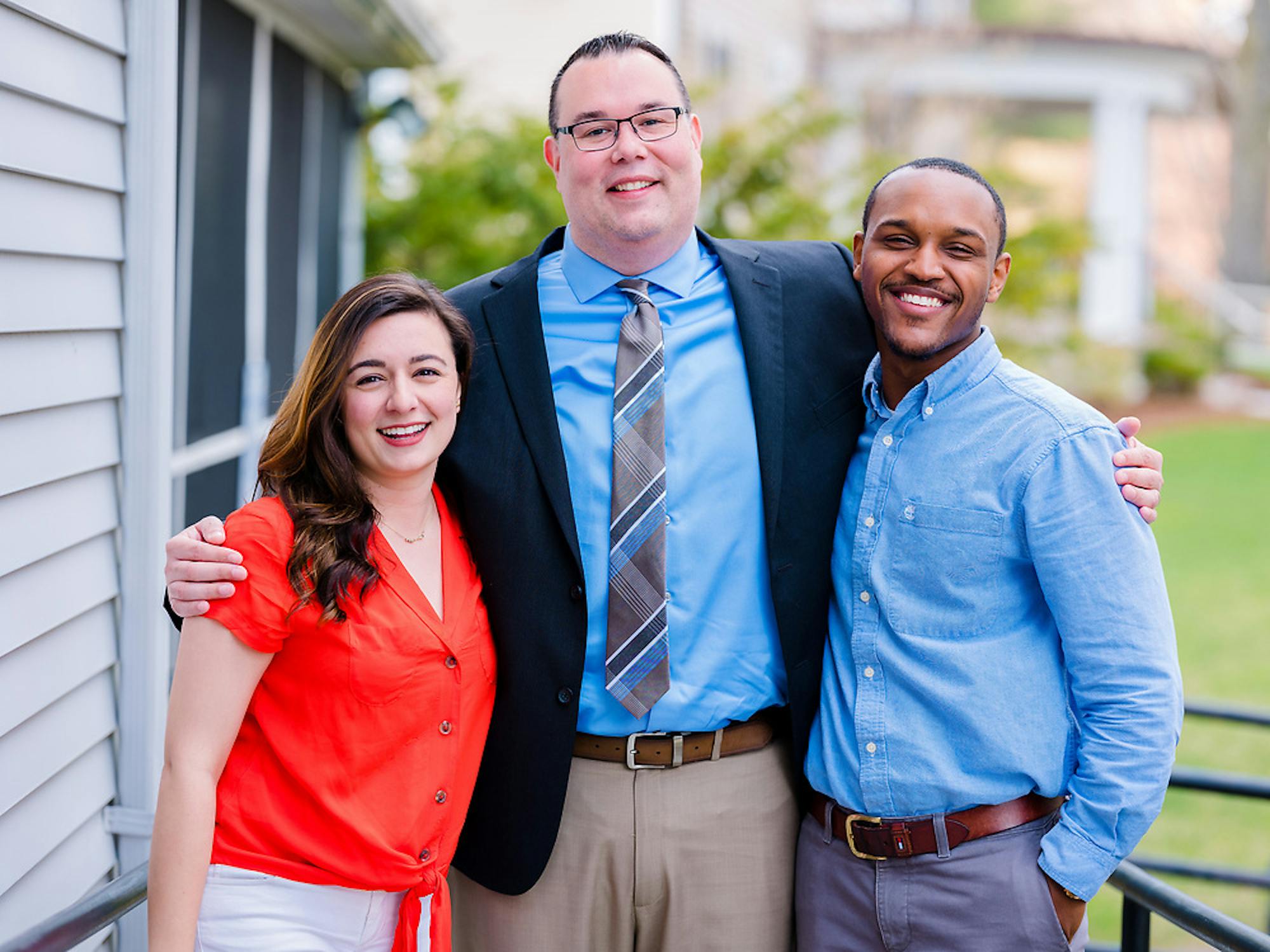In a decision made this past summer after three years of ongoing support by the organization, the Office for Student Success and Advising (OSSA) has been discontinued in order to incorporate its leadership and resources into the FIRST Resource Center, according to a Student Life email on Sept. 3. This center focuses primarily on providing resources and support for Tufts' first-generation, low-income and undocumented students, according its website.
Margot Cardamone will serve as the FIRST Center's director. Jared Smith, now the program director for the summer preorientation program Bridge to Liberal Arts Success (BLAST), will join her in that office.
According to Cardamone and Smith in an email to the Daily, the FIRST Resource Center was made to “create a community of support and to develop a network of resources” to support Tufts students with these identities.
“By strengthening the bonds between our community members and bridging the gap between resources and students, FIRST aims to ensure that students are empowered in, and prepared to reach their full social, professional, and academic potentials,” they said.
The FIRST Center achieves this goal through various programming, like the Building Engagement and Access for Students at Tufts peer leadership program and BLAST, Cardamone and Smith said. This helps provide “necessary financial knowledge, information about Tufts, support and access to opportunities and resources for students to be successful during their time at University,” they added.
While these financial resources, such as helping support students with the additional hidden costs of university, were originally distributed by OSSA; Cardamone and Smith explained that these will now be distributed by the FIRST Resource Center.
Dean of the the School of Arts and Sciences James Glaser explained that the move to incorporate OSSA into the FIRST Center was a practical decision for the university.
“OSSA had two main reasons to be dissolved. The first one was to move its advising over to Academic Affairs and the remainder of the work fits nicely into the FIRST center. The center is going to become a part of Diversity and Inclusion, which is a separate unit we have created as a result of recent changes and additions,” Glaser said.
Glaser explained in the email that these recent changes had to do with “budgetary additions and personal additions to support Diversity and Inclusion” to more fully serve the undergraduate population.
Although OSSA provided academic support for first-generation, undocumented and low-income students, it was also a source of academic advising for all undergraduate students. The OSSA move into the FIRST Center will not detract from these resources, according to Glaser.
According to Glaser, OSSA previously covered pre-major advising for undergraduates, but these roles will be filled by Deans of Academic Advising and Undergraduate Studies Carmen Lowe with the School of Arts and Sciences and Jennifer Stephan with the School of Engineering.
“The OSSA is administratively important for pre-major advising, but now it will be tended to by Dean Lowe and Stephan. It will be in the same part of advising as the alpha deans. It really consolidates advising all in one place,” Glaser said.
Cardamone and Smith also stated in an email to the Daily that they will continue their work as seminar leaders and serve as pre-major advisors, alongside the advising work being done by the undergraduate Academic Advising, they said.
Within this consolidation, Glaser expressed no concern for communication across the centers, advising units and other student divisions.
“We will make sure there is still a lot of cross-communication, cooperation and collaboration across all those units, even if they sit in different parts of the organization,” Glaser said.
Glaser emphasized that this reorganization is a matter of ensuring that the organization of support for students is optimal.
“We are just shuffling the deck a little bit in ways we think are going to help us administratively that will help both faculty and students,” Glaser explained.
Cardamone and Smith reiterated this statement that the changes are helping them support the students in the most effective and efficient way possible.
“We are most excited to be able to focus all of our attention on working with this vibrant and incredible community,” they said.
Discontinuation of OSSA leads to integration of services into FIRST Resource Center

From left to right, Margot Cardamone, FIRST Center director, Robert Mack, associate provost and chief diversity officer and Jared Smith, program director for Bridge to Liberal Arts Success, pose for a portrait outside the FIRST Center on May 1, 2018.





